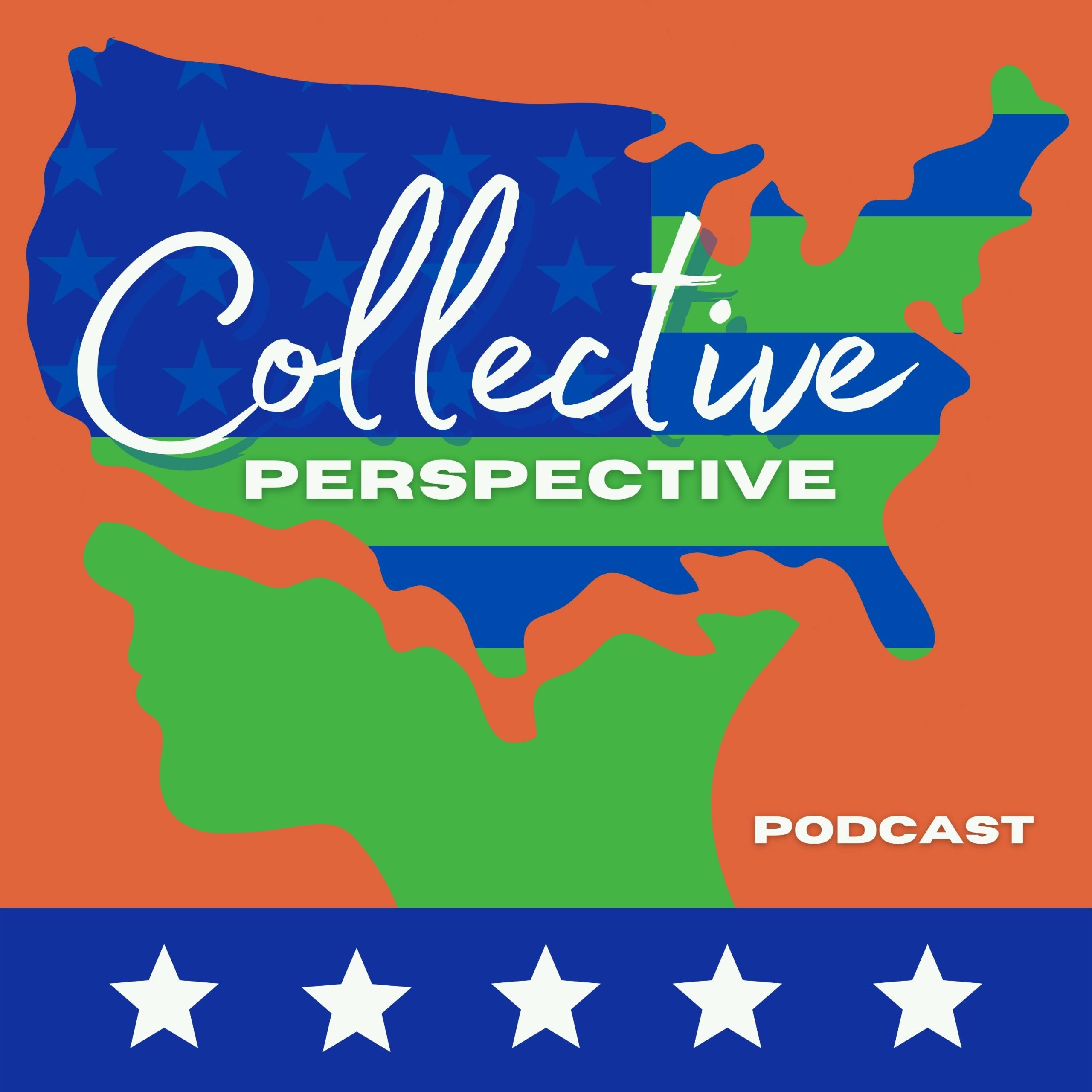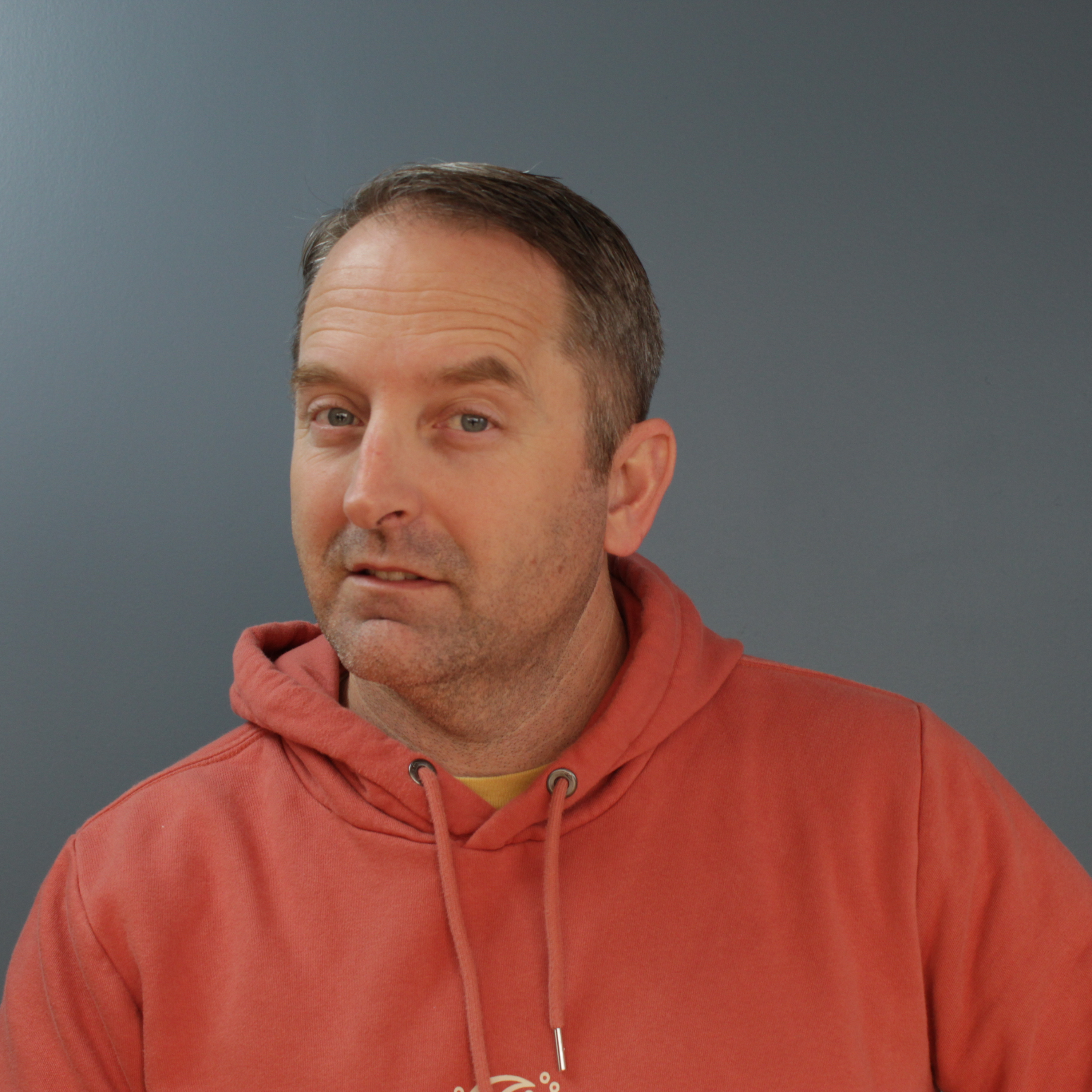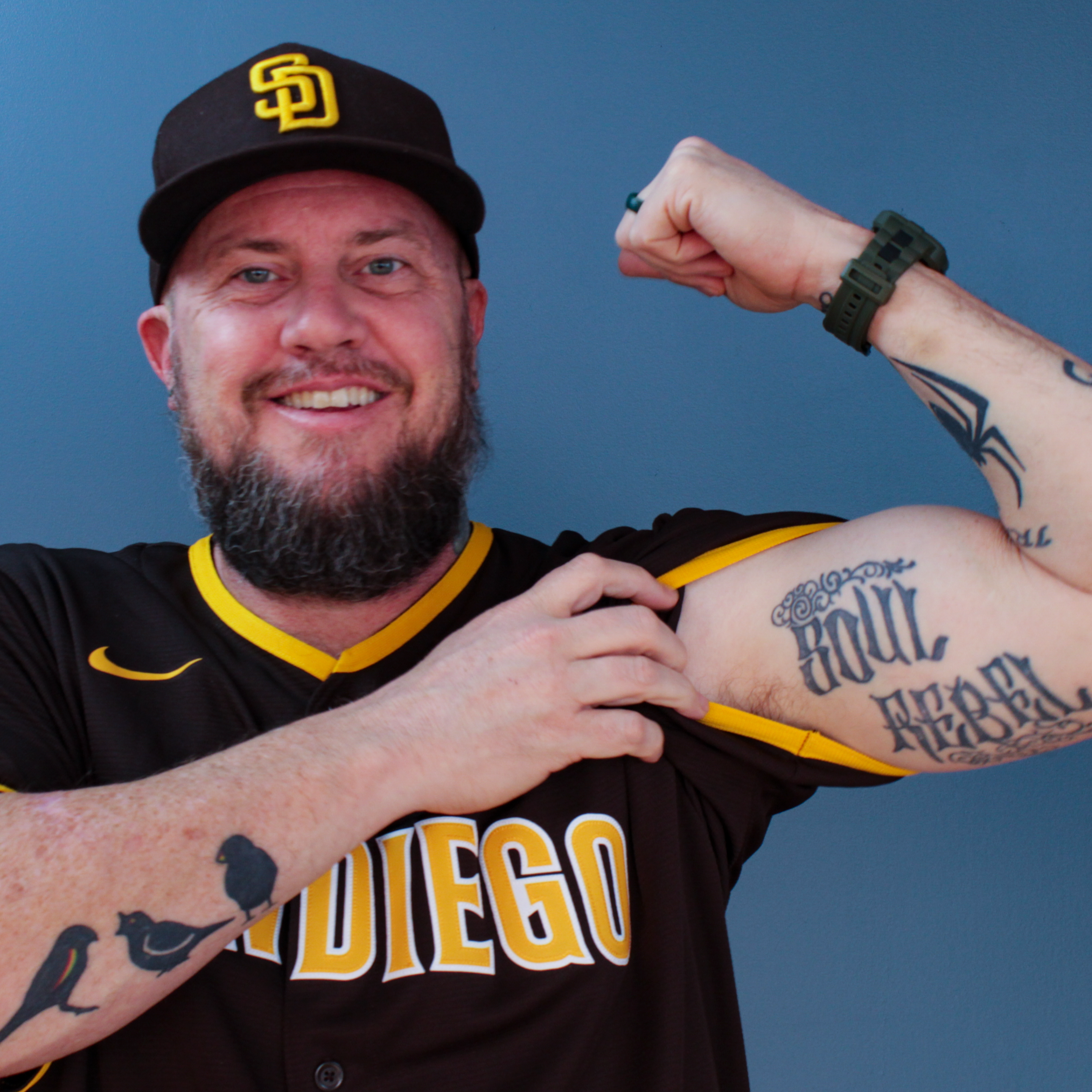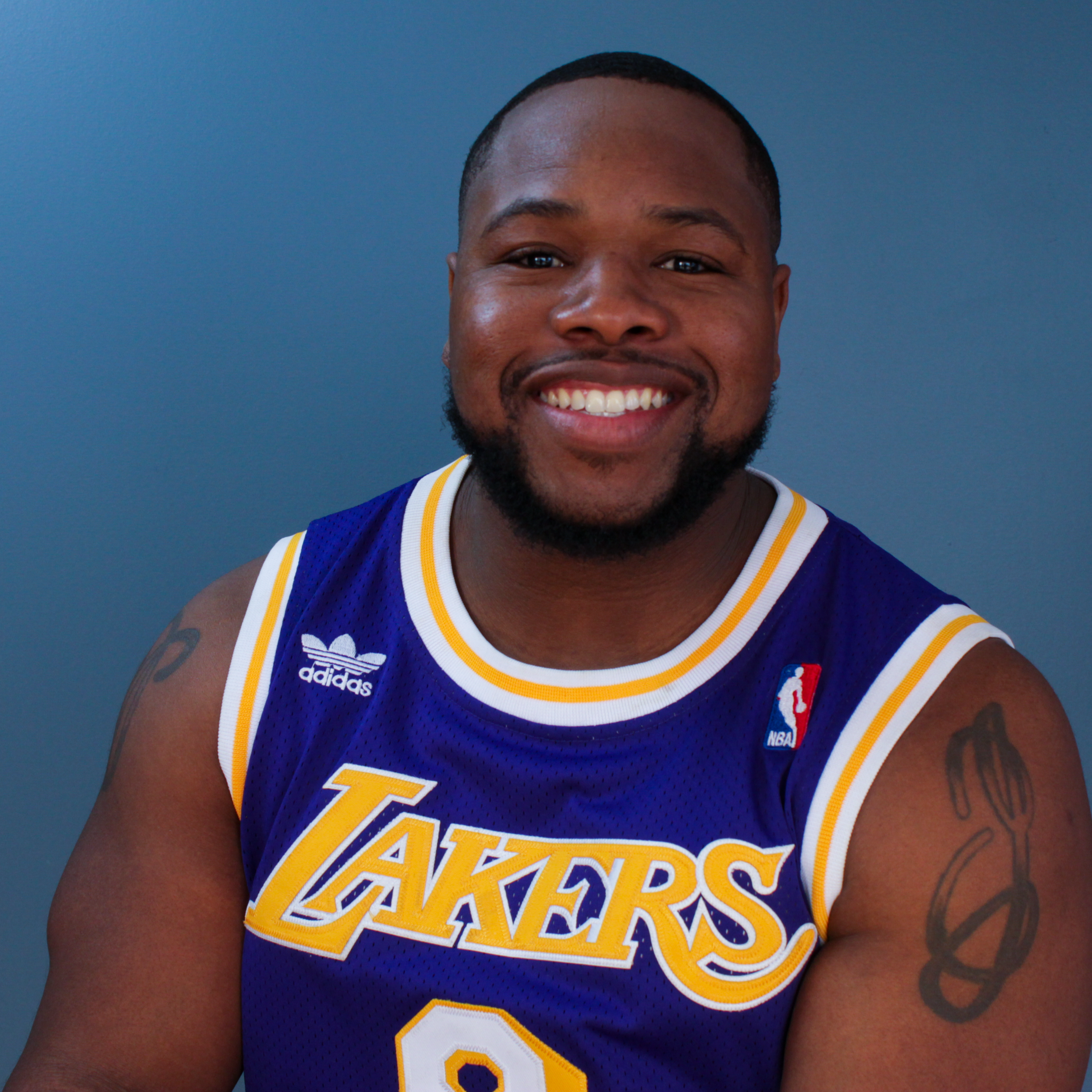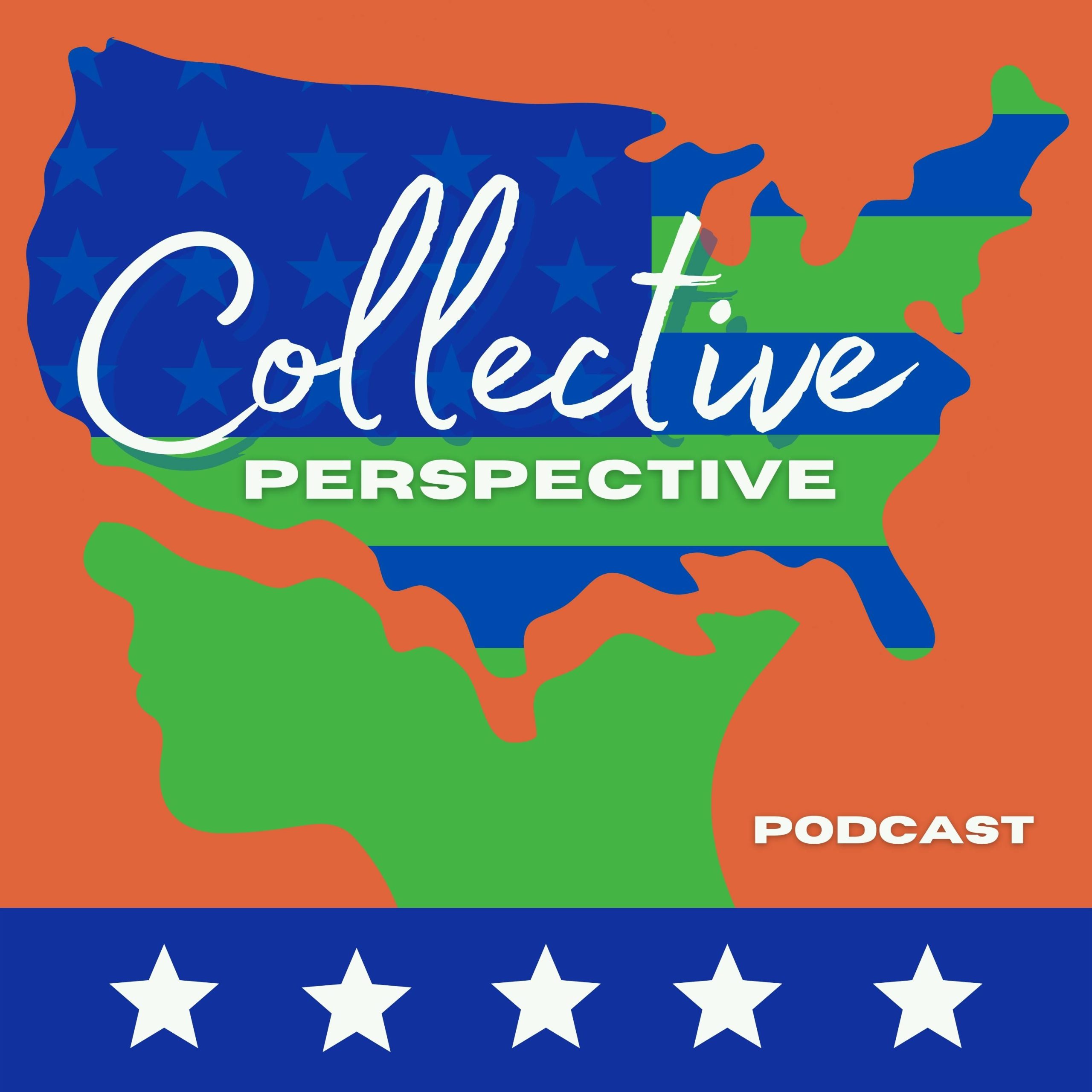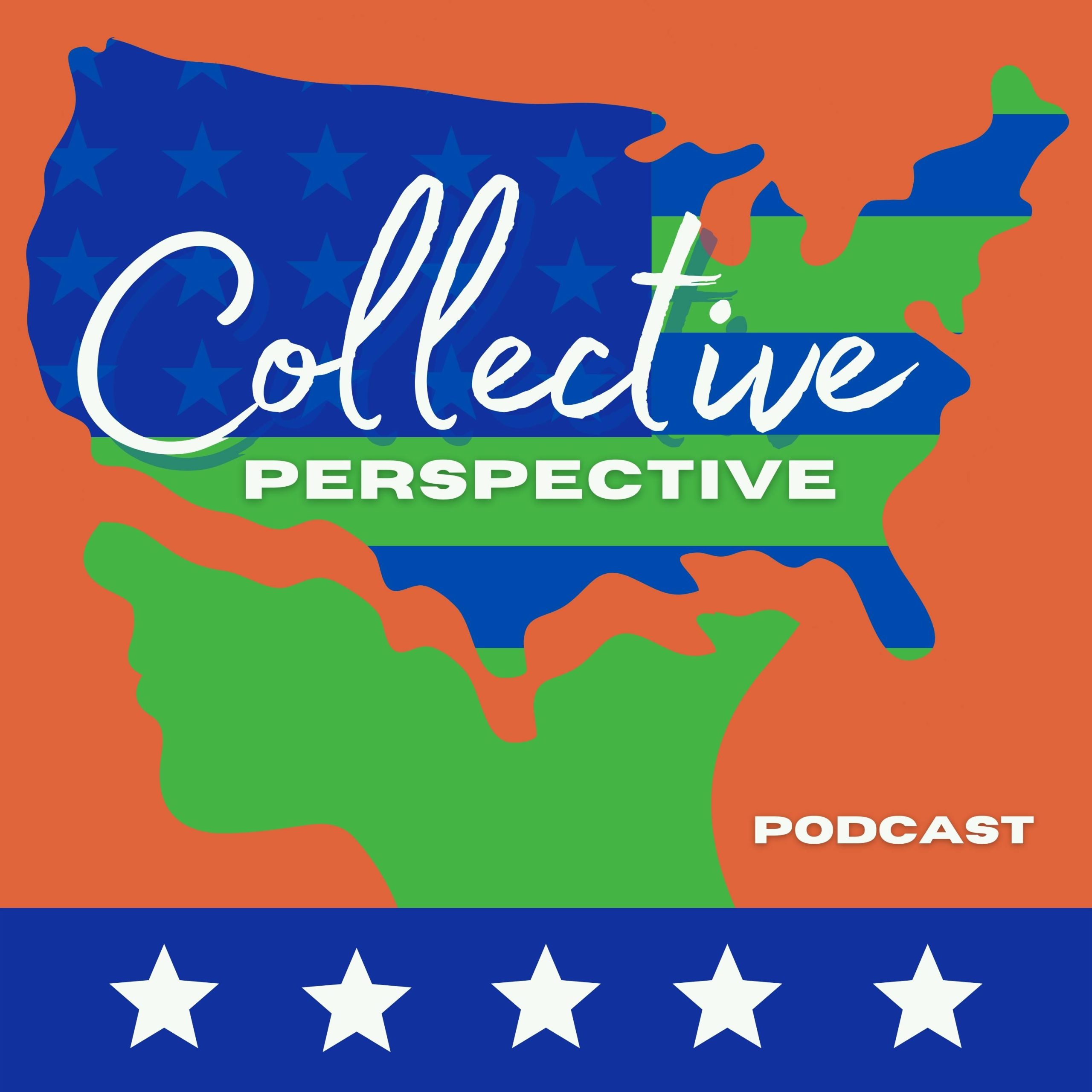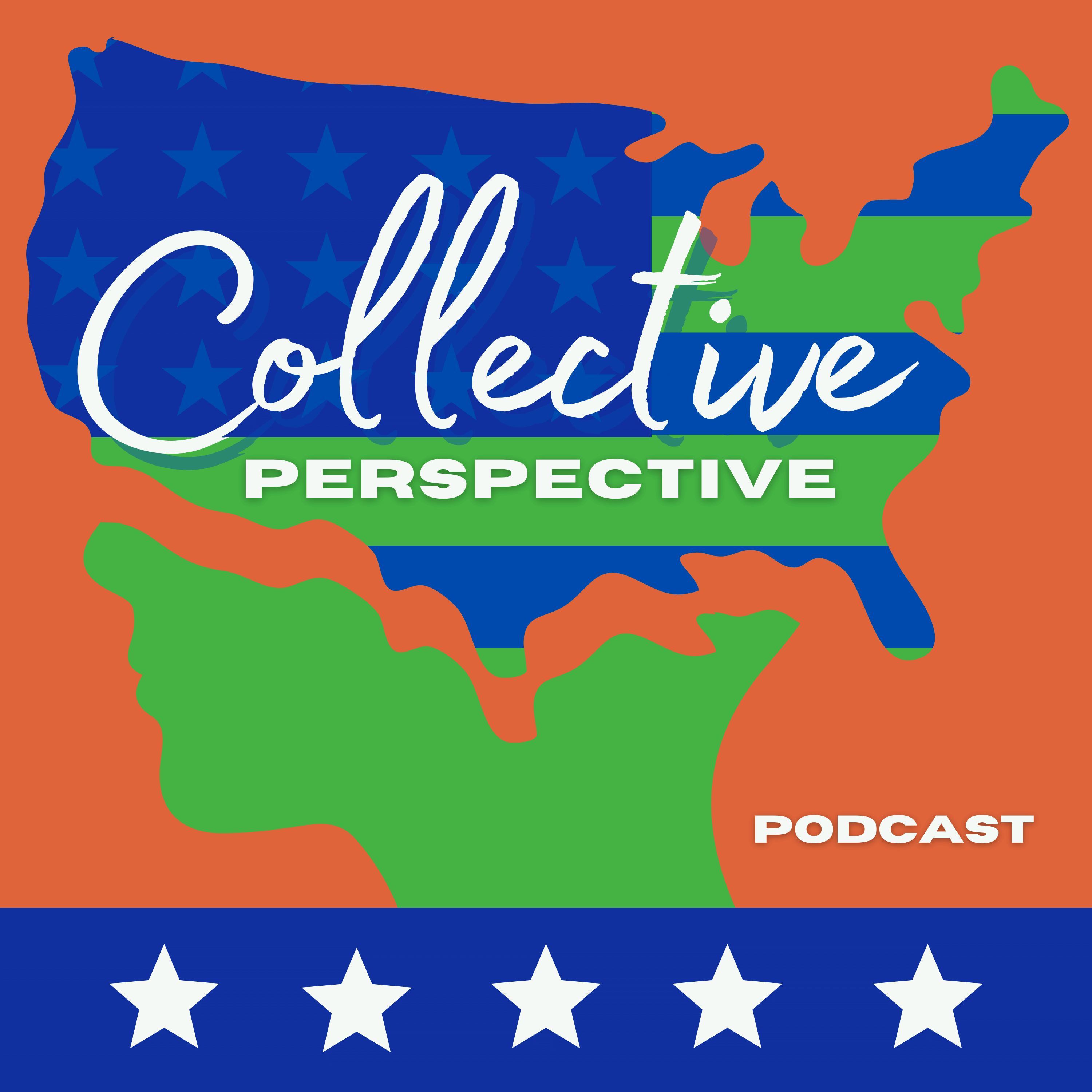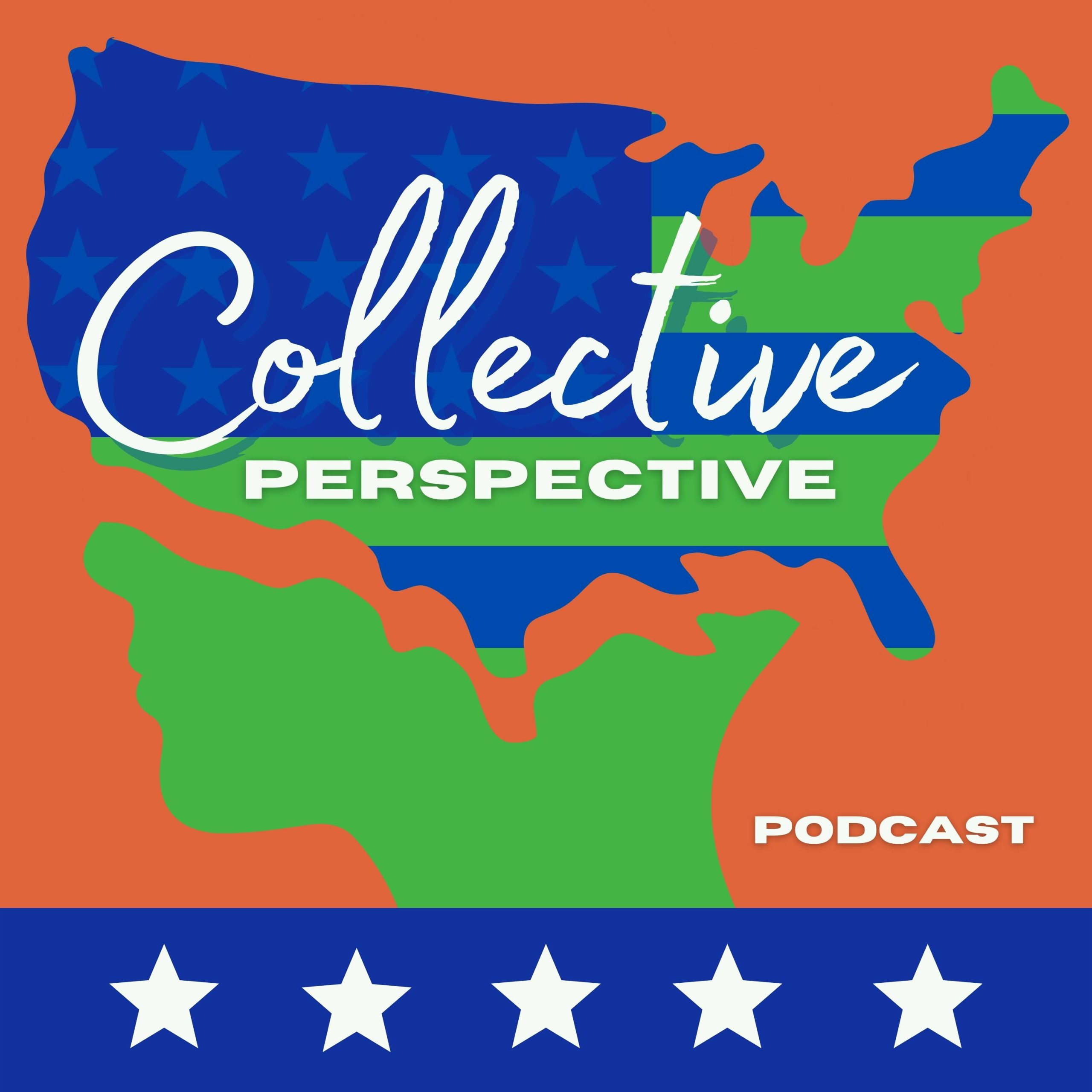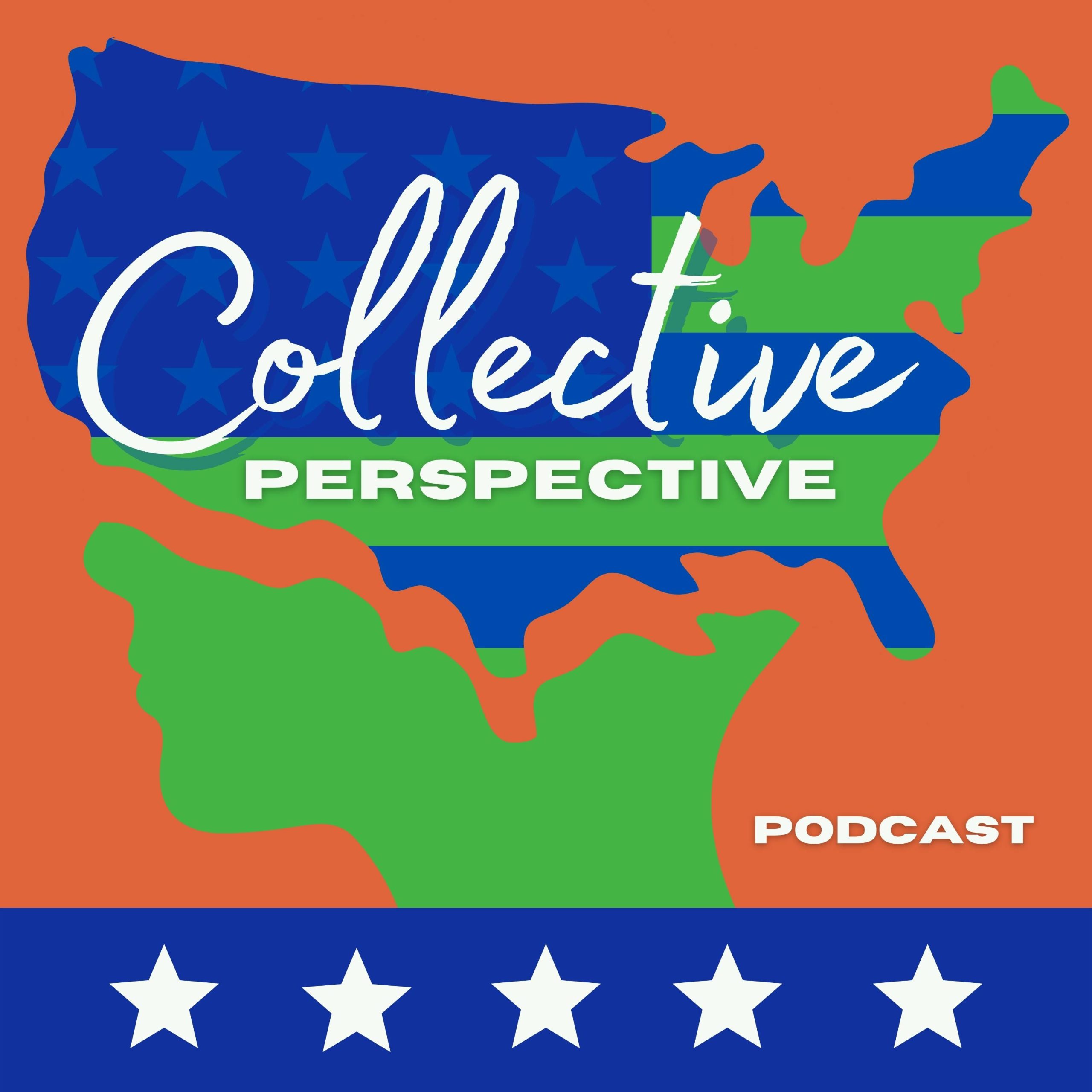United We… ‘stand’? Correct? Believe it or not this episode is the beginning to the change we need to see in this country. As Americans, we all have our needs to live life to its fullest. We all have our own version of the “American dream” and what freedom means to us. As individuals, we are not all that different. We thank Patyonna, Dr.King and even Ayn for their perspectives. Follow us in the journey of change!
View Full Transcript
Episode Transcript
To me, being in America, it's two sides to one coin because I do believe that we have opportunity, but I believe that that opportunity is still under a microscope because if you do one thing wrong, you can get canceled. We see it every day. If you have an independent thought, if like being an independent thinker in America, you're a threat.
I think there's opportunities, but I think it's still within like, and I think that we're the land of opportunity, but the more time that goes on, and the more that they're trying to create this one world order, you're still under this scope. Additionally, sometimes I'm frustrated. They try to create this culture.
There's so many people that are stuck in what they think the culture wants and what the culture says And and this is how you should live and this is how you should think this is how you should talk And that's how you should act and if anybody goes against this Cancel them. They're done. That's frustrating.
But I will say I am still grateful for the freedoms that we do have. Hopefully they last, they last us. That is my experience and how I feel about being an American. Well said. I think that, I like that she has a consciousness of the opportunities that she can utilize and then the limitations at the same time that she, she understands.
She understands the limitations socially in America, but then she understands the opportunities as well. It's a calculated risk that we take in America because, yes, individualism is somewhat praised, but it's also beaten down with a hammer if you step too far out of line. In that case, I think that we find ourselves self censoring more than we should or we need to.
That's what it sounded like she was talking about. It was self. It's like fear of losing your job. People don't want to speak up because of it. Yes, fear of retribution for stating obvious facts is almost taboo. The Collective Perspective is set out on a mission to understand some of the most impactful and controversial trends and topics in our lives today.
Hi, I'm Jeff. Hi, I'm Travis. Hi, I'm Juwan. Can we find common ground in the middle, in a peaceful manner, but with real community benefit, we believe as veterans and concerned citizens, we are striving to bring together diverse views. With fact based research to navigate this tough terrain in a search of a viable path forward.
How do we unify as Americans and prove we aren't all that much different? So meet us in the middle, not the left or the right. In season two we have decided to focus on researching and exposing fake news and fake information. We're tired of the media lying to us. We're tired of the fake news. Tired of the government lying to us.
We want to know the truth. And our mission is to seek the truth. Everybody, this is the Collective Perspective podcast. And we're here in sunny Jacksonville, Florida. Talking to you from Dicom Recording Studio. Hey everybody, this is Jeff from the Collective Perspective. And I have my buddies. This is Travis.
And this is Juat. What's up, fellas? Not much. Hey, what's up, bro? Great to be back with you guys once again. We're coming together this time for an episode that we'd like to call United Weed. United Weed dot dot dot. You add the value that you, you think should go there. The episode's intention is to display the fact that we all really just kind of want the same thing out of life.
How we all want the same thing, and there's a way we can do it collectively, and still maintain our liberties and freedoms. I think it's really illustrated what that really means, and it really comes to diversity. And diversity could be, is, is kind of being misconstrued lately too. I mean, we definitely want to include everybody.
Everybody has the right to live life and to be happy and to be healthy and has certain liberties under their birth country. I mean, that really matters. But I think what it, what it really comes down to are ten core American values. I think these may only pertain a lot to the United States because of the Bill of Rights and the Constitution and the way that the system is set up for states to be able to control a lot of what's going on in their daily lives as well without too much federal involvement and over regulations and stuff.
So, what do Americans value, guys? Individualism is great because individualism... exactly that. As an individual, you don't have to follow the herd. See a lot of outliers that are doing something completely different, dress differently, different lifestyle, different daily routine, different education, different experience.
Those in a combination of multitude of those types of people is what I feel is a core American value. Individualism is all about taking care of yourself. It is the belief and practice that every person is unique and self reliant. A belief in individualism also implies that you believe that the government should butt out of your individual affairs.
Amen. That really sounds like the objectivist way of life. It's about me and what's gonna make me advance. I think to a large part, that is a good thing that we have in America, being individualistic like that. If you're going to make an impact or a positive impact on society, you have to be, one, in a place in your life, or in your circumstance, where you're able to do that.
You have to focus on yourself first before you can give to the community. Well, it's like they say that you have to love yourself before you can love others. I agree with that. Yeah. I don't think it's a narcissistic thing. Love that neighbor, and you love yourself. I call it the virtue of selfishness.
Actually, Ayn Rand calls it that. Individualism also gives you the right to. Or is what gives people the ability to vote, voting as an individualist type of thing. They say that your relationship with God is an individual relationship. It's a personal relationship. It's not, it's not the church that you go to.
It's not your family. It's your relationship with God at the end of the day. And let's face it, we don't die with anything. We die by ourselves. Maybe some people die with other people, but there is one single journey. All right, so we've talked about individualism, core value of Americans, freedom. Now, freedom, to me, that encompasses a lot of different things.
I think freedom is a very big topic, yes. It's huge. We've, I've, we've talked about some freedoms on, on this show in the, in the past. Well, mostly freedom of speech. Yes. The First Amendment freedoms, mostly. We haven't really gone into other ones like freedom of movement. That's another one. Well, mobility is a core value.
That's something that people take for granted, especially with vehicles and how we get around these days. You need a driver's license to show that you can drive on the roads. Well, they're federal roads, they're federally maintained roads. That's one thing, but they can't block you from traveling. If you don't have a license, you can still move about the country.
It may not be in your own vehicle, it may not be in a vehicle at all. You can ride a bike, you can ride a horse, you can ride, walk, run, what, there are different modes of transportation. Motorized vehicles require a license in this country. I personally am the type of person that the vehicle is just a mode of transportation for me.
Some people more like luxury or sports cars. Well legally. Legally what? Legally it's the difference between traveling and driving. Like if you say, I'm driving. I was talking leisure or sport, but okay. I get you. So the difference between driving or traveling? Yeah, you have a right to travel the earth with no, no paperwork or...
That wasn't given to us by anyone, that's a God given right. It's a God given right. But if you tell someone you're driving somewhere or you're doing something in a technical perspective, then you are required to, you're required to give ID, you're required to give... It's your sovereign right as a human. To travel.
Yes. Are you a nomad? Um, no. I mean, you're a jawad. No. A group of people that exercise that right are gypsies. And carnies. Yeah. And gypsies. We have some... Nomads. Nomads travel. Yeah. The Bedouins. The Arab nations. I think they call them Bedouin, right? So you go to freedom. Freedom I think is relative to the perception of the laws that present it to the person in that region.
It gives it a, it gives you a certain perception of a freedom. Freedom is defined as the state of mind you have the right and are free to do what we think of. You're able to think of something and go do it without any restriction. So freedom is not that far off from true anarchy, without laws. The main emphasis on freedom is that you need to feel freedom from within.
So again, it's an individual thing, freedom. I guess that's even encompassing mental freedom, right? Especially mental freedom, yes. I think you have to be free from within. And then if we throw economic freedom in there, oh man, we're getting a freedom soup here. Because economic freedom is another big topic.
It is. And in places like China, they don't really have that, do they? No, my wife said she was watching Facebook, it was about this guy that helped Nigerians and how these Nigerians literally live, their house is flooded and they have to move from room to room without getting wet, and they still pay rent, but the government takes all their money.
It's like I was talking more about like what they are actually doing with the social credit score They don't have economic freedom if you've met your quota for certain things They cut you off you go to buy it and it says declined and you can't buy something. That's Economic freedom and that's what the power of a digital currency would have if it was implemented in the world But I think economic freedom goes way deeper than just money, though.
It has something to do with civil rights. It's like we have the freedom of speech, but we don't have economic freedom. It's us having to bow down to the master and having to pay, pay the man. What happens if you don't pay the man? We can choose who we pay. We don't have to pay the man. Or they fine you for more money.
They show up with guns and take you by force or threat of violence. Right on that coffee table. That you don't have because you didn't pay it in the beginning. Because you didn't have it. So, taxation. Taxation is theft. I'll leave that there. Pretty much believe that. Taxation is theft. And I think that road pirates are real.
And everybody has probably encountered one every once in a while. At least once in their lives. Doesn't sound like freedom to me, man. Road pirates, you know what I'm talking about? No. State troopers. Oh, but taxation doesn't sound like freedom, brother. No. Well, what is a tax? A tax is something burdensome to influence behavior.
It is a, you use my money for your commerce and you have to adhere to my rules. Or if you want... To do this, you have to pay with extra labor. It's a tax. It's a, it's a burden to, to have to bear. So much so, they have two different judicial approaches to the prison infrastructure and state and federal that dictate our way of living, primarily.
You got a guy who commits a crime, he loses his freedom in two different ways. Which is federal or state and he has to actually serve time on both ends. Wow, it's crazy and that's not freedom at all But economic freedom though, I think That does have to do more with purchasing power. It's true. Oh, you can't buy that land.
Why not? I'm an American Well, because we've said you can't buy that land. Oh, yeah, or it's time to put a new highway. We're taking your land We're gonna take it Because this is... They do offer you money though most of the time, don't they? Very, it's not a very, um... It's a very one sided deal that's not in your favor.
Yeah, and you have no choice to turn it down. That's not freedom. That's the eminent domain laws. And there are some that have been reversed, where some people have gotten their stuff back, or had the law changed. I don't agree with eminent domain. Yeah, that's a group if any group big enough comes together and says we want that then they can take it and it's Super hard to get an allodial title.
It's I've heard about this is the allodial title. It's hard I think you mentioned it before. Yes, and that basically says that through through my sovereign right to own Land the land the earth provides for me to live on I didn't purchase that with a with money I got that or inherited that or it came from an inheritance.
Yeah, I want to apply for an elodio title that Completely eliminates me from any obligations of taxation tax loopholes There are some other core values like pragmatism means Thinking of or dealing with problems in a practical way rather than using theory or abstract principles So logical and linear and rational as opposed to abstract That's another value of being an american that It's acceptable.
To look at a problem for what it is and not, Oh, well, what could it mean? Some theoretical or educated guess. Right. Logic. Other than, but it's an intimate experience. Like, okay, this is my testimony because I've experienced this. I've lived this. This is my truth. This is my truth. Yeah. So also there's voluntarianism, sometimes referred to as voluntary action.
It's the principle that individuals are free to choose goals and achieve them with. Within the bounds of certain societal or cultural constraints as opposed to actions that are coerced or predetermined. You're able to set your own goals, achieve those, and it's not predetermined. Volunteerism.
Volunteerism. That almost sounds like voluntary action. To me, that sounds like it's more of volunteering to help your fellow man or your fellow community member out of the kindness of your heart, not expecting anything in return. To volunteer to do something. That's why when you join the military, it is a volunteer military here in America.
You're not drafted anymore, per se, into service. You sign on the line under your own free will. I know, like, back in Vietnam, they implemented the draft and you had no choice in it then. Hey, you're drafted. Here's your number. You're going. There. Now, we do have a large standing army, military, and the draft hasn't been necessary.
We haven't had a very big world conflict in many, many, many years. And that sounds like, sounds like patriotism. It is like a form of propaganda that perpetuated patriotism, which Encourages people. Uncle Sam, I want you. Yeah, I want you. USMC, Uncle Sam's Misguided Children. So, volunteerism in many perspectives.
A form of patriotism. Mirror. A form of patriotism. I kind of liked the idea, I, I thought maybe stoicism would have been one of the values. Patriotism is love of country, identification with it, and a special concern for its well being and the people with it. Absolutely. So patriotic isn't all what seemed to be negative.
Individual responsibility but a collective response. There's a word that's pretty close to that, nationalism. Nice. There sure is a lot of isms. While nationalism emphasizes the unity of a cultural past with inclusion of language and heritage, patriotism is based on love towards people with a greater emphasis on values and beliefs.
I think it's safe to say that we all want the same thing out of life. If you had three things to say, three words that you wanted out of life, what would those be, Travis? Probably... Happiness, love, those can kind of go hand in hand. And... Love is a big word, but feeling loved. I think that's more accurate. Yeah, feeling loved.
Come on, man, you have to pick health. You want to be healthy. Healthy, loved, and happy, right? I'm not choosing for you. No. Healthy, healthy is, I don't necessarily think that that's something that, uh, You know, what is healthy? We've got all these books that say, well, eat a clean diet, eat this, do that, exercise like this.
Are they happy? Some are. And those benchmarks change. They do, so. They change every six months to a year. Being healthy, it's, I think it's important so you can try to live your best life. But I think being happy in yourself, being loved. Okay, so we have happy then love. What's the third one? You know, I can't really think of the third one.
Uh, I know, I don't think I've ever been put on the spot like that before. The three of, uh, with three things. Well, I think we can all agree, love and happiness. We want to be happy, we want to feel loved. The feeling of love, the feeling of, not everybody has kids, but I can tell you from, and we can all agree that once you do have kids, it changes your life and love is different.
There's a different definition to love. Actualizing your full potential. That, to me, is important. And I don't know how to say that in one word. Being educated? Not necessarily. Maybe wisdom? Because that's not necessarily just education. That's experience and learning. People want security. People want quality of life.
People want peace. I like those three. That's what they want. And health falls into the quality of life. Love falls into the quality of life. Relationship with God. It makes quality of life, security. It falls with being able to pay your bills, being able to have enough money to go on vacation. Being able to sleep safely at night.
Safely at night. Peace. I think you're talking a little bit of economic freedom there. Absolutely. Kind of a little bit of all of it. No, that was, that was a, yeah, it's what everybody wants and what I feel that there are people that are hoarding the money. So people can't have that, or don't have the ability to have that.
You know, I really think the less the thing is, peace is important because I think most people die of stress more than probably multiple different things that are in their life. Yeah, I think you're right. I think one of the most misunderstood issues is mental health. I think we're still trying to figure out, that is like the great unknown in some perspective.
and peace of mind is everything. Peace, having, being able to, to have peace, mentally, physically, spiritually. I think when we only use 10 percent of our brains, there's a lot that we're not going to unlock. And that's a tough one to unroll, you know? How do you... That's going to take the longest for us to really achieve, is that mental health and mental stability amongst everyone.
I always like to say that happiness is a choice. For some, I suppose it's not. Or some that's not. It's a chemical imbalance. What I also find interesting is the three things that you need for a happy life. That's just one of the things. To be happy, you need someone to love, something to do, and something to look forward to.
You have to have some type of goals, or You know, they say that most people retire, and then they sit at home and Die. Watch Fox News, and die. And they don't go out and do things, and that's because... Their bodies just starts to deteriorate. They've met their goals. And met their goals. Be happy. I think being happy encompasses a lot more than just that.
I posted this on our Facebook page the other day and the habits of happy people are seven things. Don't show off, talk less, learn daily. I think that's an important thing right there is learn daily. You finish school, you, you have your career, but what else do you have? You need to learn daily. Help the less fortunate, laugh more, ignore nonsense, and no entitlement.
The one I didn't hear was making memories on purpose. Yeah, I think a lot of people lose that because they're trying to capture it on their phone or something like that where I love the moments where you just don't capture it and it's just a memory. I do capture a lot of moments on my phone with my kids when we're doing like big certain things, but it's only like one or two pictures.
That's it. Put the phone away and then nothing else. What I see in the moment. That's special for that time. I can remember it. I can explain it to my kids. They'll remember it. No one else shares that with us. Yeah, the moment never feels like the moment until you actually look back on it. The present is a gift.
Before we get too far away from, I think we're missing the American Dream. Yes. What is the American Dream? Do you want to hear Martin Luther King's version? Absolutely. Not, I have a dream. That's two different things. Or is it? That's a good question. The American Dream, July 4th speech. We face the difficulties of today and tomorrow.
I still have a dream. It is a dream deeply rooted in the American dream. I have a dream that one day this nation will rise up and live out the true meaning of its creed. We hold these truths to be self evident. That all men are created equal.
That one day on the red hills of Georgia, sons of former slaves and the sons of former slave owners, will they be able to sit down together at the table of brotherhood. I have a dream. That was his American dream. Based upon what, how his culture dictated that dream to be for him. He saw that through the lens of oppression.
Very unified speech, unifying speech in my opinion. Yeah. When I took a trip before we moved to Florida with my son to DC, and that was one of the monuments we went to was Martin Luther King's monument, and it is awe inspiring. It's really a beautiful monument. Wow. When we talk about freedom is, and we can't deny the fact, uh, or we can't deny, I think the man that probably said it the best.
So is the American dream still alive? I think that dream has largely come true. Despite what the media would have you believe, I really do believe that we sit down with one another at the table. It was evident, it's, I think it's more evident in times of strife when everyone is struggling. For instance, in a war.
There are no colors. You're my brother in war. We're trying to get through this together. And then, say, when the stock market crashes here, or when economic times are tough, people tend to come together a little bit more. They ignore what's being spoon fed on TV because, hey, that's what got us into this mess.
I think that's really what we probably need a little more of is... Getting away from that and getting back to our tribes, our local communities, and supporting one another there. I think that we do come together more than is being portrayed on TV. It's all about, it seems to me, to be all about division and pushing people away and making this group not like that group or whatever the case may be.
But realistically, yeah, when we sit down together and we talk, We're not that all different. We do have a lot of the same goals in mind when it comes to living together amongst each other. I think his dream was a righteous intent, but I think ultimately we, I don't think we've truly seen the true potential of what he wanted it to be.
I think the economic infrastructure that we live in and known as a corporate entity called United States of America doesn't allow for that dream to truly be. live to its fullest potential. To be realized. Yeah. Because we look at each other by our financial or our, our financial status. You have a 1%, you have the middle class, you have the, the poor and the immigrant.
And definitely there are different classes of how. They treat each level of class of living, whether we like it or not, a lot of us kind of sidestep certain classes of financial status, we won't interact with, in many perspectives, poor people, and poor people doesn't interact with middle class, and middle class doesn't interact with the wealthy.
Everybody looks at each other as an opposition, in some perspective. I think because of the way... Our government has just set up. I don't think we can ever really truly see what Martin Luther King intended for us to actually see or to live out. I would say that his dream hasn't come true either. Economic rights are human rights.
We have the Bill of Rights as a person, but those aren't economic rights. Those are political rights. As an American, we have political rights, but we have a decline in economic rights. Economic rights is a good example of the wages haven't increased in 50 years. The cost of everything has gone up. You know, it's just like the current fight with, uh, McDonald workers making 15 an hour.
Okay, I get it. Like, it's time to increase the minimum wage. But the rest of people's wages didn't go up. So it's just, I think that's what I have to say about economic freedom is... And where Martin Luther King steps in and he talked, it's a civil rights, it turned more into civil rights. I think earlier you mentioned that the, the rich are hoarding their slice of the pie.
I think that's the wrong way to look at it. Are they? There, there is no pie. What is wealth? What is, what is the representation of money? It is the representation of your efforts and labor. It is an idea. It is an idea. It's a concept. That represents your product. Yeah, there's a guy that said, I'll put my granddaddy on a dollar, on a piece of paper.
And say this is, this is, this represents value. I think ultimately wealth is a idea, it's a cultural idea. Even racism, it's not even a human issue, it's an economic issue. Racism is economic, economical. It has nothing to do with color, it has everything to do with... financial status. They have to, in order for the actual dollar to have any value, racism has to be established.
Here's a good example of what he's talking about. I think you can't take money away, pharmaceutical companies and lower the price of prescription drugs as a government. You can't rely on funding from the fossil fuel industry and combat climate change. You can't collect money from wealthy company CEOs and implement co worker labor reform, and you can't do fundraisers with billionaires that come up with their own fair tax system.
Have you guys ever heard the Reconciliation Act? It's a bill for 350 billion tax cut Wall Street firms. The American people are on a hamster wheel, man. And the 1 percent is just looking at us laughing. Sorry, we kind of went off on a little economic freedom thing, but I think, uh, It's just crazy. We're talking about freedom.
There's so many different terms of freedom. I think we need to explore that maybe just a little bit more about the concept of money. When you accept money in payment for your effort. You do so only in the conviction that you will exchange it for the product of the effort of others. It is not the moochers or the looters who give value to money.
Not an ocean of tears, nor all the guns in the world can transform those pieces of paper in your wallet into the bread you will need to survive tomorrow. Those pieces of paper, which should have been gold, are a token of honor. Your claim upon the energy of the men who produce your wallet is your statement of hope that's somewhere in the world around you.
There are men who will not default on that moral principle, which is the root of money. Is that what you consider evil? I think the greatest insult to humanity in some perspectives is saying, I'll give you this money for your time, which is the most valuable resource that you will ever be able to maintain and have is time.
How can you price literally one of the most valuable resources? With a dollar. Well, you own a business, right? Yes, I do. Are you giving them your time or your skills? Or are you giving them a combination of the two? I'm giving them an experience. Right. So, you're getting paid for something different than your time.
Even though it's in a time frame. It's true. In response to what Travis was saying is, I, I heard what you said, but where does mining come into that? Where does the ethics of mining money come in? You know, you talked about how money is, you know, you define money. The Bible says that the love for money is the root to all evil.
The love of it is the root to all evil. That's right, Bezos. The lovers of money are willing to work for it. They know they are able to deserve it. Run for your life from a man that tells you money is evil. The sentence is a leper's bell if an approaching looter. So long as men live together on earth and need means to deal with one another, they're only substitute if they abandon money.
Is the muzzle of a gun. And who wrote, who's, uh, who's saying this? This is Ayn Rand, this is the Francisco de Ancona speech on the love of money, Atlas Shrugged. One of my favorite books. Sorry. It's a very long book. Wow. Money or Whips and Chains. How do you prefer to barter? Kind of a thing. Money is, is a representation of your efforts.
And you're talking about mining money. Well, that's, that takes effort to do that. The ones that go out on their own... What effort? What effort is that? They go out there with a pickaxe. Yeah. They go out there in a pickaxe. Where do you think a lot of people got their money in America from? Some of the wealthiest people, they mined it themselves.
I'm talking about Bitcoin. There are still gold mines. Bitcoin? Yeah. That's mining, they're mining money out of, like, computer, out of, uh, the Matrix. Okay, they mine it, they keep it. Okay, but how did they earn it? They didn't earn it? They just found it? No, they worked for it. How did, what did they do to have to work for it?
Mining Bitcoin takes a lot of Did it take a lot of energy out of their fingers on the keyboard? What did they have to do? There are algorithms they have to come up with. It's mental. Or is it just time? It's, it's, it's a lot of time. It's an idea. It's mental ability. It is an idea. You know, it's just like the corporate way.
I think we've talked about this before, just making something out of nothing and then selling it. You know what, screw it. I'm just gonna go buy a mine up in Colorado somewhere and just live off the grid. I don't think they'll let you do it though. They do. A perfect example of that is an idea. A perfect example of a business that capitalizes on an idea is like Uber.
They don't own a car in the world. They just created an idea and created and they really just broker the idea with people with cars. And say okay, just call it an Uber. And put our brand in the process of you carrying people around. Another business. like that. They haven't bought one item to sell in any of their, any of their facilities.
They, they build. We bring them their product to sell. We give them their product for free to sell. Donations. This is the other part of that speech that I think is, is pertinent. If you ask me to name the proudest distinction of Americans. Pertaining to us in particular. I would choose, because it contains all the others, the fact that they were the people who created the phrase to make money.
No other language or nation had ever used these words before. Men had always thought of wealth as a static quantity, i. e. the slice of pie. To be seized, begged, inherited, shared, looted, or obtained as a favor, Americans were the first to understand that wealth has to be created. The words, to make money, hold the essence of human morality.
So we've talked about, in a nutshell, what do most people want? They want fulfillment, they want peace, balance, confidence, freedom, happiness. Love, don't forget, money. Quality of life? No, the last one is money. Money. Quality of life would be balance. Until and unless you discover that money is the root of all good, you ask for your own destruction.
When money ceases to be the tool by which men deal with one another, Then men become the tools of men. Blood, whips, and guns, or dollars. Take your choice. There is no other. And your time is running out. This is Ayn Rand. Did you guys know that CEOs make 40 times the amount of the average employee? I'm sorry, 400 times the amount?
That is a ridiculous amount to me. I can't fathom. I can't even imagine 400 times the amount that I make now. Realistically, that is, that is a number so big that most of us probably won't see. Did you know the homeless rate in America is 40 million, or we have 40 million poor people in the United States?
Poverty. Yet, we... Send all this money over to help a nation of only 10 million or is the money really just going back to the corporations Hey guys, I want to we could finish off this episode. There are some topics coming up soon Consumerism capitalism again. Here we are with all these isms I think this is probably one of the most important conversations that we've had, that people need to know that we're not much different from each other.
If we saw each other, and what really makes it different is social media, you don't know, you can't read the temperament of someone that's writing something all the time. People go there to vent. People go there to get their dose of dopamine for the day through gratification that somebody liked their post.
I know it makes me happy when I get a like. It does. As a matter of fact, you can follow the podcast on Facebook, The Collective Perspective Podcast. And I think... This episode was meant to illustrate what freedom is and what it means to be an American. We have all these choices, we have all these things that we spoke about.
Yeah, we really discussed well, the values of Americans. We covered them, I think, like you said, pretty organically as we were going through, as we started off with the first one or two and then all of them kind of came together and it's like, wow, yeah, this is something that we all really think about, but we don't.
I think that, again, what Martin Luther King said, the original idea was the right idea. The way our forefathers established the concept of America, it was right, initially. I think it still is right. It is. And we have veered away from it tremendously. Yes. Yes. Absolutely. Yeah. That's just my parting words.
Hey, everybody. United we I would say we stand. Our forefathers Who said it? Who said united we stand, divided we fall? The phrase has been attributed to the ancient Greek storyteller Aesop, both directly in his Fable of Oxen and the Lawn. Aesop's fables. And indirectly in the Puzzle of Sticks. This answer is from Wikipedia.
Ha. Ha. Ha. Ha. Ha. Ha. I wanted the American version. So guys, is that united? We stand? Absolutely. I definitely think we should all stand together. I think it's time to speak up. Silence only makes the government stronger. United We stand, divided we fall. It goes back to the founding fa, one of the founding fathers, John Dickinson in his Revolutionary War song.
The Liberty Song first published in July 7th, 1768. Patrick Henry used the phrase in the last public speech given in 1799, in which he denounced Kentucky and Virginia resolutions. Again, it was used in an unsuccessful campaign in 1858, where Stephen Douglas was opposing Abraham Lincoln. And it's even a phrase on the Missouri flag.
United we stand, divided we fall. When we come together we can stand tall, be proud, and, and fight whatever injustices are that we see. When we're divided, obviously, we are weaker. That's a Sun Tzu thing too. Divide and conquer. United we stand, divided we fall, then why is there only a left and a right? Hey everybody, peace out.
